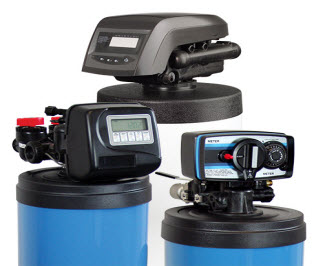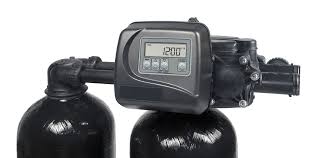Clean water is not easily available in nature. Water undergoes several stages of treatment before it becomes a usable product. In nature, it is often found in a complex state, with several minerals. Many of these minerals alter the chemistry of water, thereby making it hard to use. The hard water minerals will also stick to your appliances, water storage and delivery equipment causing scaling, clogging of pipes, and affect flow rates in faucets and showerheads. Water softening and conditioning are two important forms of water treatment that help minimize the hardness of water and improve its usability. Water softeners treatment system and conditioners are often used in residential and commercial applications to address hard water issues mainly related to calcium and magnesium carbonate. These two technologies are very different in their approach when it comes to addressing the hard water issues. Any process of physically removing hardness minerals and replacing them with sodium or potassium ions is a softening method of treatment. Any process that reduces the effects of hardness minerals without removing them is a conditioning method of treatment.
Water Softener Systems Vs. Water Conditioning Systems – What is the Best for You?
Water softening and water conditioning have their own pros and cons. The following will help you understand it better.
- Water Softener Systems: Water softeners use an ion exchange process to physically remove calcium, magnesium, iron, and manganese from water. The water enters into the mineral tank and is made to pass through the bed of resin beads, which are spherically shaped. These resin beads are made of plastic like polystyrene and charged with sodium ions. The hard mineral ions attach to the softener resin and sodium ions are released in its place. The resin beads feature anions, which are negatively charged. The minerals such as magnesium and calcium, which are commonly found in hard water, are positively charged or cations. As known, the opposite charges always attract, so when water passes through anion charged resin-bed the minerals are attracted to them. A sodium ion is released when the bead captures a mineral ion. This means, minerals are physically removed and exchanged for sodium ions. Softeners are not generally recommended for iron and manganese removal, as these metals can foul the bed if the levels are excessive. However, fine mesh cation resins and/or cleaners can be used to treat iron and manages removal and at times may be the best alternative.
Softeners will increase the sodium levels in the water and at times the sodium exchange can be excessive. Intec can consult with you on the ion exchange rate and offer options for drinking water if individuals are on a low sodium diet. Advantages are the water will have a “softer” feel and you will definitely see a difference in the soap’s suds while bathing. Individuals that are not used to soft water may complain of a slimy feel. Softeners are the very best at addressing hardness and are used heavily for residential and commercial applications where little tolerance of hardness minerals is required. The resin inside the tank of a softener has a long life which can exceed 10 years. The only maintenance is to make sure salt is always present in the brine tank and an occasional addition of a resin cleaner to the brine tank.
- Water Conditioner Systems: Conditioners do not remove hardness minerals. Instead, the media changes the state of the hardness ions and prevent them from attaching to plumbing and fixtures. In fact, these conditioners will remove some existing scale in the plumbing. In most instances, the water is pretreated, as oxidants such as chlorine and hydrogen sulfide will attack the media. Metals, such as copper and iron, will permanently attach to the media decreasing its life and effectiveness. The treated conditioned water will have a slightly different feel which is ideal for individuals who do like the slimy feel of soft water. Since minerals are not removed, shower walls and dishes may have a dusty appearance that can be easily wiped off versus untreated water that has a hard scale that requires aggressive cleaning agents or scraping to remove. These systems are often installed on residences that use tankless water heaters, as conditioners are great in protecting the heating coils of these systems. Conditioners can also be a low maintenance alternative for suggested reverse osmosis system pretreatment. Advantages are that these systems do not require electricity nor regeneration/backwashing, which offers more options on the installation location. Conditioners are considered “green” eco-friendly alternatives to softeners. The only maintenance is replacing the media every 2-5 years. Some US counties have banned water softeners due to their inability to treat the high salt content discharge and concerns of damaging wetlands, which makes conditioners the perfect option.
Other options to address hardness minerals include electrical or magnetic devices, nano-filtration, reverse osmosis, and de-ionization.
- Electrical and Magnetic Device Conditioners: The effectiveness of electrical and magnetic device conditioners vary as certain properties must be present in the water or the devices simply will not work. These will not work in all applications but may be highly effective in others. It is recommended to ask for a trial period or pilot study before you purchase these systems.
- Nanofiltration: This is only used for commercial and industrial applications and it will physically remove hardness ions. They are expensive when compared to other options mentioned here.
- Reverse Osmosis: A reverse osmosis system offers higher quality output for less of an expense to nanofiltration in residential applications.
- De-ionization: This has very high maintenance costs and is overkill for residential applications. Emerging softening technologies such as electro-deionization and captive-deionization are very expensive and have not found a place for residential applications at this time. These are promising technologies and we will closely follow the progress on these technologies.
Intec offer many innovative options from traditional salt-based water softeners, conditioners, all-in-one filter/conditioners, and so on. Please contact Intec today to discuss which option may be best for you and your family.


